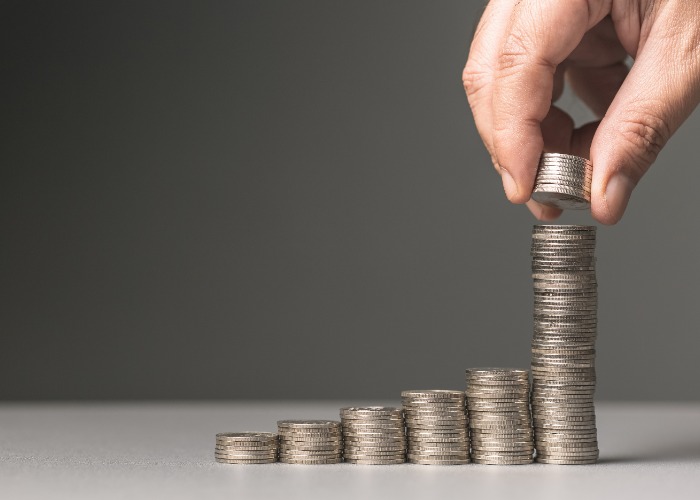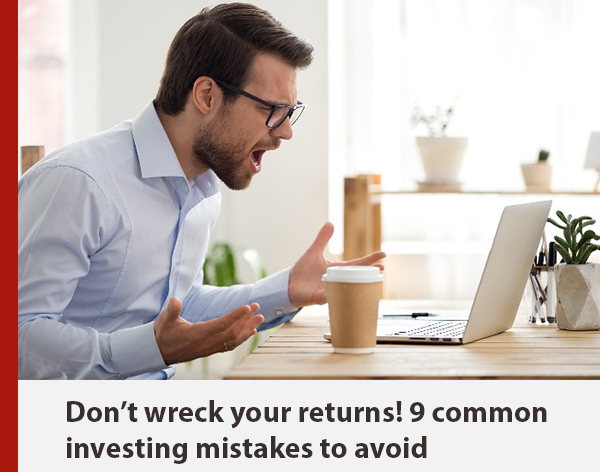Supercharge your returns: your guide to compounding

Compounding can seriously boost your returns. Here's how it works.
What is compounding? It may be a familiar term, but a recent study revealed less than half of investors know what it means.
Here, we look at how compounding works and the potential benefits it can provide to both your cash savings and investments.
Compound confusion
Physicist Albert Einstein may have branded compound interest the “eighth wonder of the world”, but many people are blissfully unaware of what it means.
Almost a quarter of them have never heard of the term, according to a survey by Hargreaves Lansdown, while one-in-10 who have had it explained are still none the wiser.
Sarah Coles, head of personal finance at the investing firm, isn’t surprised. “It’s mysterious, difficult to visualise, and most of us don’t understand it,” she said.
What is compounding?
The definition of compounding is growing your money by earning interest on interest that’s already been received. The good news is that it’s simpler than it sounds.
Let’s start with a basic example of having £100 in a savings account that’s earning 5% interest – paid annually – each year. At the end of the 12 months, you’d have £105.
You might guess you’d make £10 after two years £15 after three, but that’s not how it works, according to Coles.
“In year two, you’re not getting interest on £100, you’re making it on £105, so you’d get £5.25 in interest and have £110.25,” she said.
“In year three you’d make 5% of £110.25, which is £5.51, so you’d have £115.76.”
Is it worth it?
Yes.
Although it doesn’t sound like a huge difference when it comes to small sums of money, the benefits increase in line with the amount invested.
For example, if you were to invest £20,000 in a Stocks and Shares ISA for 20 years, earning 5% annual growth, you’d be making £1,000 each year.
If you exclude compounding, that will give you a profit of £20,000 after two decades, pointed out Coles. However, the compound effect results in a total of £53,066.
“The more frequently growth is added, the bigger the impact of compounding,” she added. “So, with growth added daily on the same sum, growing at the same rate, you’d end up with £54,362.”
Dividend reinvestment
The compounding effect doesn’t just involve cash interest rates. Another example is how you can bolster returns by reinvesting dividends received.
For investors in the UK equity market, most of the real return (after inflation) has come from dividend reinvestment, according to Jason Hollands, managing director at Bestinvest.
“Over 20 years, the FTSE 100 Index returned 81.4% in price terms,” he said. “But when dividend reinvestment is factored in, the total return is 282% - that’s compounding!”
Hollands cited the example of a £1,000 investment in a fund or share that delivers capital growth of 3% each year and distributes a 5% dividend.
“After 10 years, the capital value grows by £344 plus £590 in dividends are received, giving a total return of £934,” he said.
“If the dividends had been reinvested each year, the gain would be £1,016.”
Longer-term focus
According to Darius McDermott, managing director of FundCalibre, compounding is all about getting rich slowly by investing for the long term.
“Warren Buffett didn’t become the richest person in the world by being a great trader, he did it by compounding his holdings over a very long period,” he said.
McDermott used the example of a UK equity income fund that made 8% each year for a decade.
“At the end of the 10 years your total return would not be 80% (8%x10), it would be 116% thanks to the magic of compounding,” he said.
He also pointed out that compounding becomes more effective over longer periods.
“In the same example, if we made 8% for 50 years in a row, the total return would not be 400% (8% x 50) but actually 4,590% as the compounding really starts to take effect,” he added.
Are there risks?
Unfortunately, yes. There are always risks when it comes to stock market investing, as returns are never in a nice straight line.
The penalty for enjoying higher long-term returns for investing in the stock market is that investors must suffer extra volatility, according to FundCalibre’s McDermott.
“That means the value of your investments will move up and down and will almost certainly have periods of very large falls or drawdowns,” he said.
However, McDermott maintains that the main lesson is not to be greedy – and to give your investments time to work.
“Invest consistently over a long period in a well-diversified mix of investments and you won’t go far wrong,” he added.
Comments
Be the first to comment
Do you want to comment on this article? You need to be signed in for this feature
